STEAM JULY 12, 2022
VR THE ABYSS
Virtual Reality Game
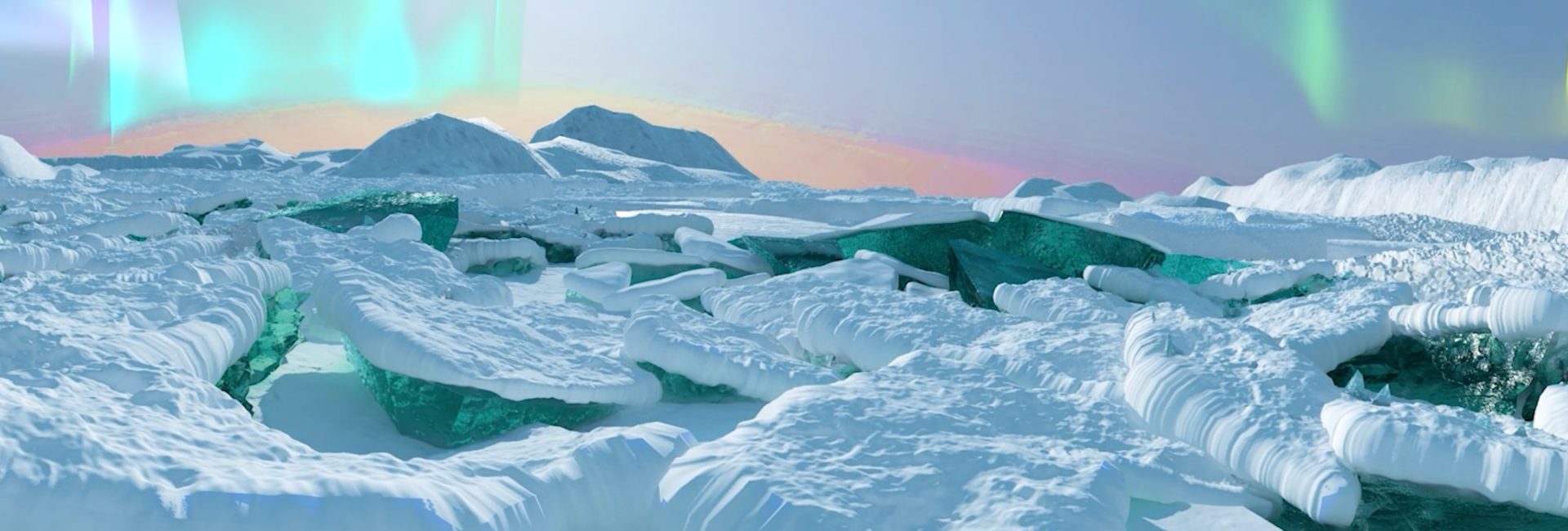
The Abyss is a VR simulation game that allows players to
pilot a versatile submarine capable of reaching the ocean
floor and deep sea, providing a lifelike experience of
observing various marine animals.
Participants
H2CTLAB TEAM
Technology
Virtual Reality Game
Display Type
VR HMD
Intellectual Property
H2CTLAB Assets
Scene 02
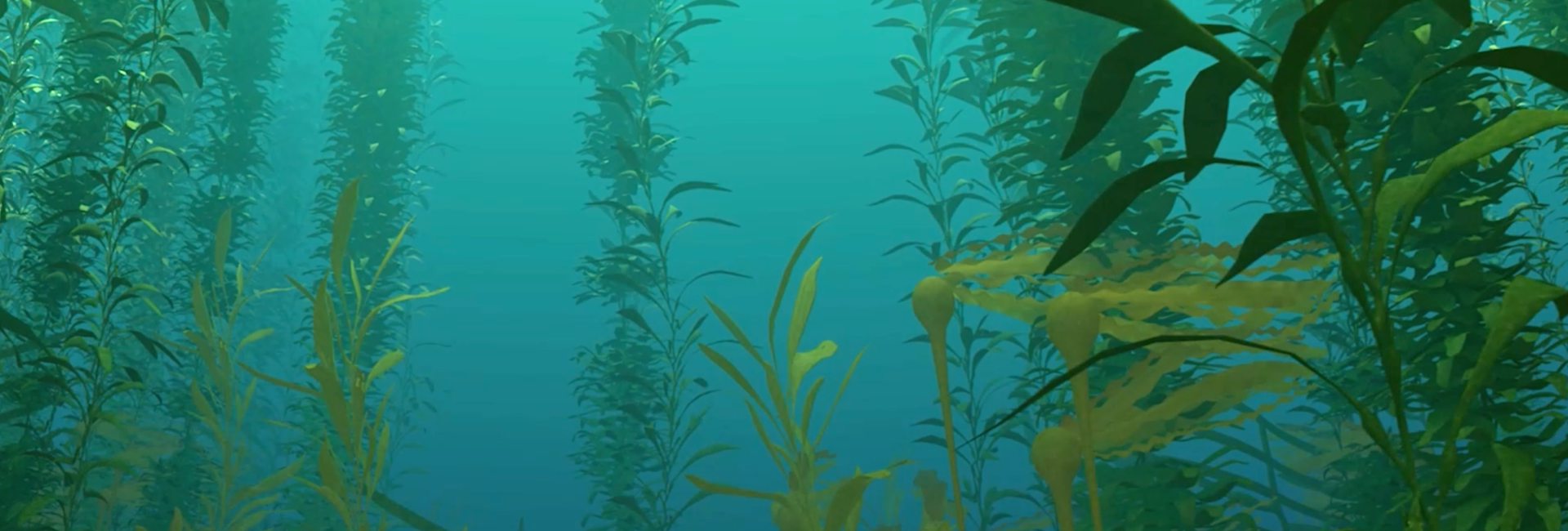
As you descend into the ocean, various seaweeds come
into view. The limited visibility creates tension, as if
something might suddenly emerge from between the
seaweeds.
Scene 03
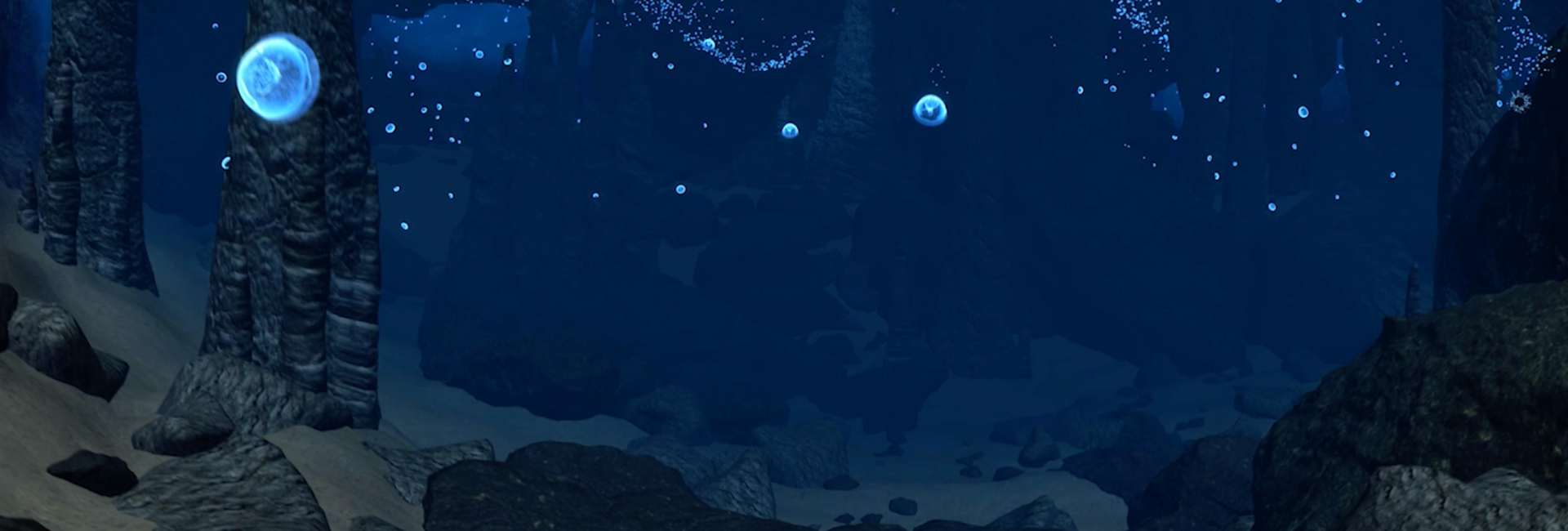
A scene showcases jellyfish and various luminescent
deep-sea creatures. The increasing darkness indicates a
descent into deeper waters.
Scene 04
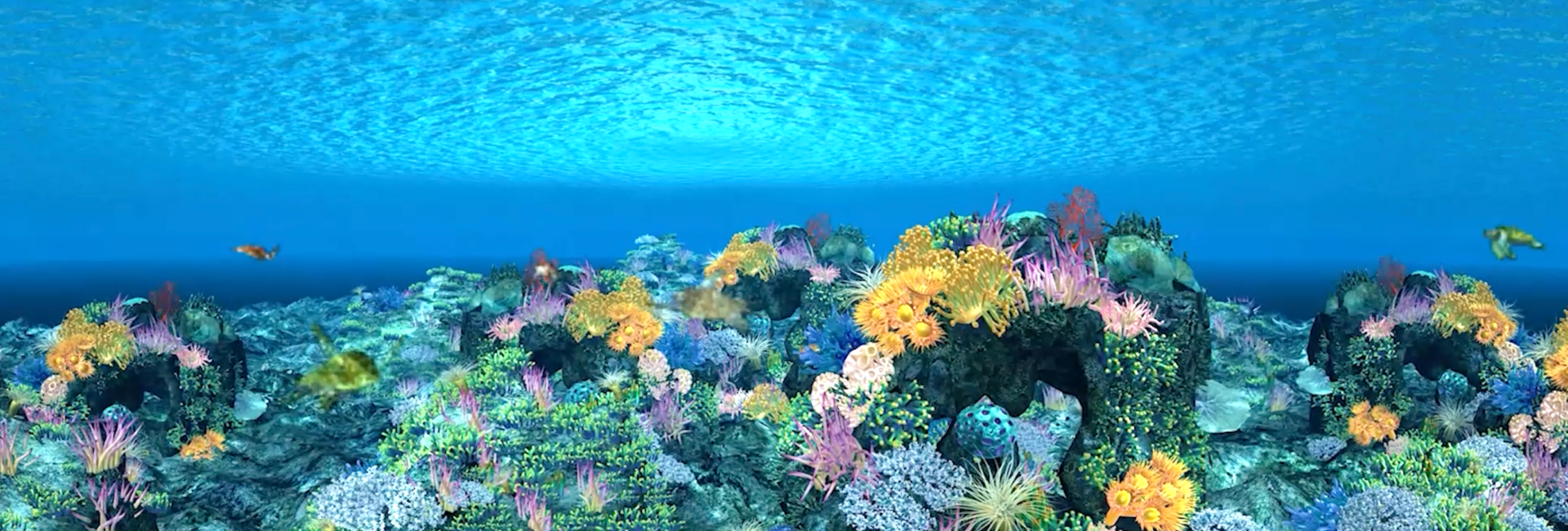
Emerging from the deep sea, colorful corals and fish
help alleviate tension. The ocean's surface waves are
clearly visible from underwater.
Scene 05

Glowing marine or deep-sea animals gradually transform
into stars, creating a scene reminiscent of space. The
scene concludes with dolphins swimming freely, their
forms gradually changing into starlight and blending
with the background.
Elysia Crispata

Inhabits tropical seas, Atlantic coasts, and the
Caribbean Sea
Lives in clear, shallow waters
Body length about 5cm, body width around 3cm
Possesses a wide variety of colors, ranging from blue to very pale with red or yellow stripes on some individuals
Throughout its life, it can become either an autotroph or a heterotroph. Before reaching adulthood, it is a heterotroph, but as an
adult, it generates energy through photosynthesis
This translation maintains the structure and content of the original Korean text, describing the habitat, physical characteristics,
and unique nutritional properties of what appears to be a marine organism.
Lives in clear, shallow waters
Body length about 5cm, body width around 3cm
Possesses a wide variety of colors, ranging from blue to very pale with red or yellow stripes on some individuals
Throughout its life, it can become either an autotroph or a heterotroph. Before reaching adulthood, it is a heterotroph, but as an
adult, it generates energy through photosynthesis
This translation maintains the structure and content of the original Korean text, describing the habitat, physical characteristics,
and unique nutritional properties of what appears to be a marine organism.
Hexabranchus Sanquineus

Widely distributed in tropical and subtropical waters
from the eastern coast of Africa in the Indian Ocean,
including the Red Sea,
to Hawaii, southern Japan, and Australia
Grows up to about 40cm
Larger in size compared to other sea slugs
Appearance varies: some have reddish bodies with white borders, while others are entirely red. Some individuals have lacy,
fluttering edges, while others have a more simple appearance. They feed on marine sponges and poisonous jellyfish, absorbing
the toxins for their own defense. They lay rose-shaped eggs on coral rocks. These eggs contain highly toxic substances to
protect them from predators until they hatch.
to Hawaii, southern Japan, and Australia
Grows up to about 40cm
Larger in size compared to other sea slugs
Appearance varies: some have reddish bodies with white borders, while others are entirely red. Some individuals have lacy,
fluttering edges, while others have a more simple appearance. They feed on marine sponges and poisonous jellyfish, absorbing
the toxins for their own defense. They lay rose-shaped eggs on coral rocks. These eggs contain highly toxic substances to
protect them from predators until they hatch.
Janolus Cristatus

Distributed from the offshore areas of Norway to the
coasts of the UK and France, and also found in Morocco
and the western
Mediterranean.
Overall, it has a translucent, oval outline
Grows up to a maximum of 7.5cm
Has a considerable number of cerata with rounded tubercles, giving it a swollen appearance. The t ips of the tubercles are
bluish-white and may appear luminous. Each tubercle contains a thin digestive tract that can be seen through the transparency.
The front tentacle-like appendages are slightly longer and darker than the other tubercles.
Mediterranean.
Overall, it has a translucent, oval outline
Grows up to a maximum of 7.5cm
Has a considerable number of cerata with rounded tubercles, giving it a swollen appearance. The t ips of the tubercles are
bluish-white and may appear luminous. Each tubercle contains a thin digestive tract that can be seen through the transparency.
The front tentacle-like appendages are slightly longer and darker than the other tubercles.
Halgerda Terramtuentis
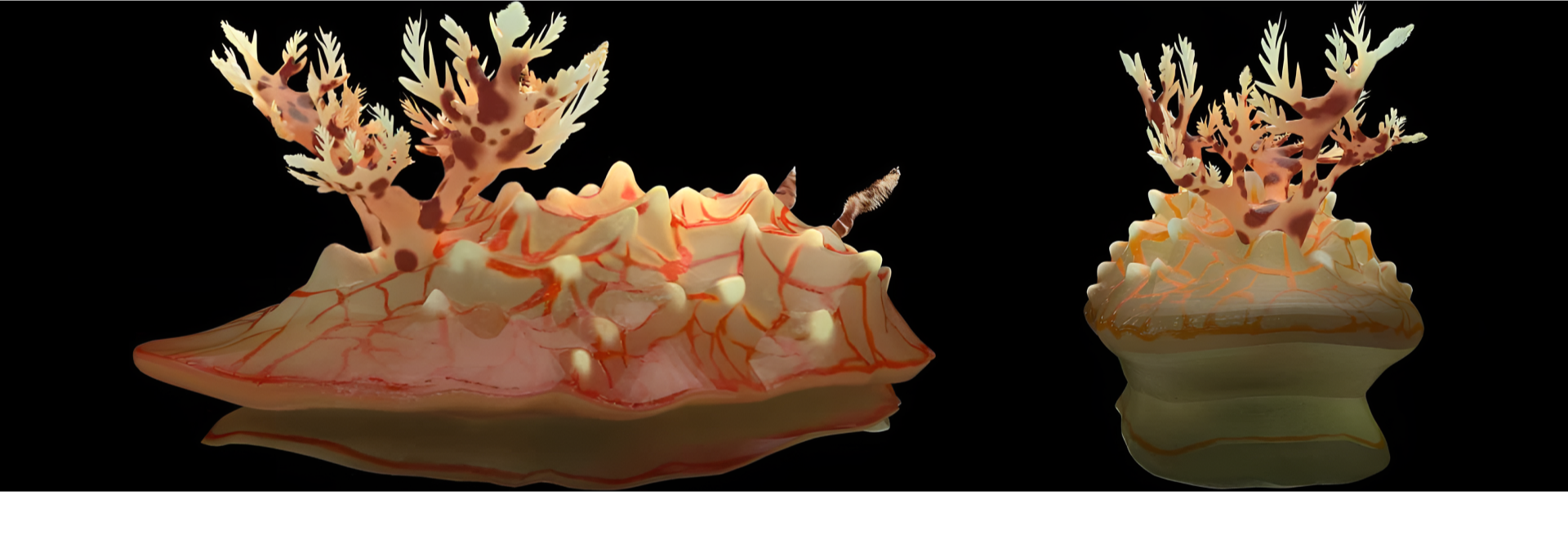
Inhabits warm waters in the West Indies, Pacific,
tropical regions, South Africa, southern Australia, and
coastal areas of Japan.
Typically measures about 5 to 10cm in length
Distinguished from other sea slug species by large, column-like, bright orange protrusions on its back.
The back is evenly covered with multiple small tubercles, each tipped with a transparent yellow color.
Dark lines connect between the tubercles, giving the appearance of a net covering the back. Primarily crawls along the
sea floor, feeding on small algae and similar organisms.
Typically measures about 5 to 10cm in length
Distinguished from other sea slug species by large, column-like, bright orange protrusions on its back.
The back is evenly covered with multiple small tubercles, each tipped with a transparent yellow color.
Dark lines connect between the tubercles, giving the appearance of a net covering the back. Primarily crawls along the
sea floor, feeding on small algae and similar organisms.
Simulation 01
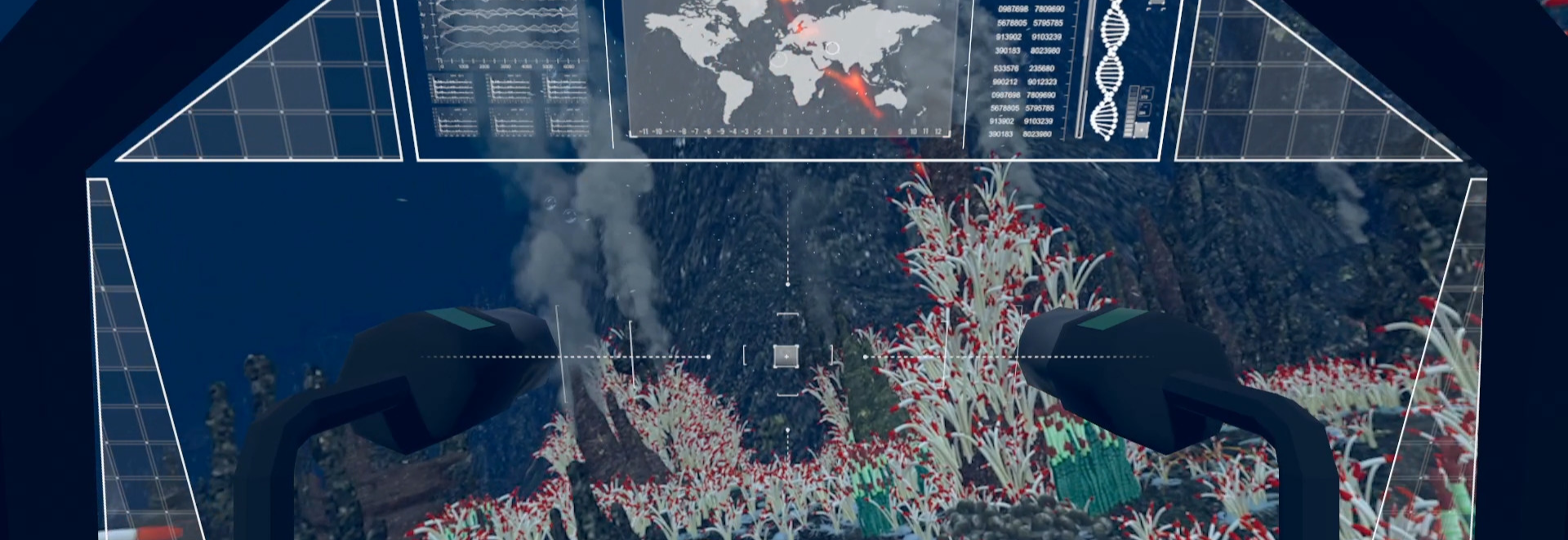
A scene depicts the process of observing and collecting
coral.
Simulation 02
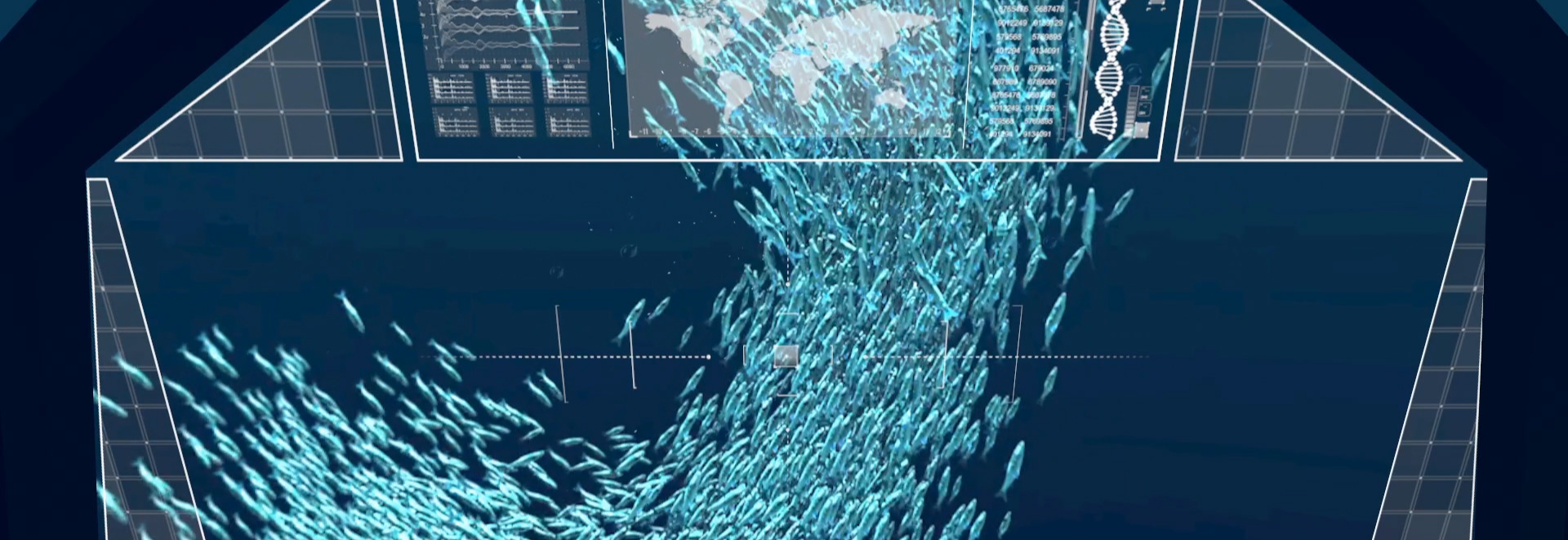
The game showcases intricate movements of schools of
fish. A world map UI at the top allows players to
explore oceans globally and observe different fish
species.
Simulation 03
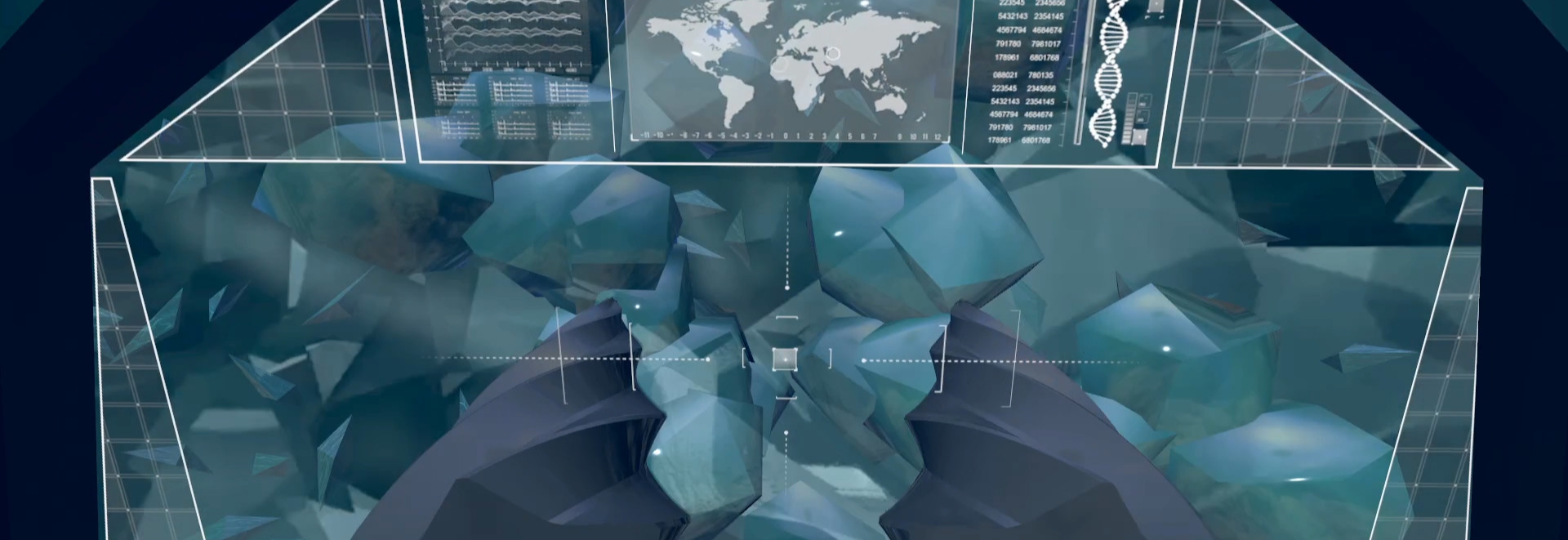
The game showcases intricate movements of schools of
fish. A world map UI at the top allows players to
explore oceans globally and observe different fish
species.
Simulation 04
During underwater exploration, players may encounter
schools of octopuses. While numerous octopuses can
obstruct progress by blocking the view, all elements
emphasize realism.
Simulation 05
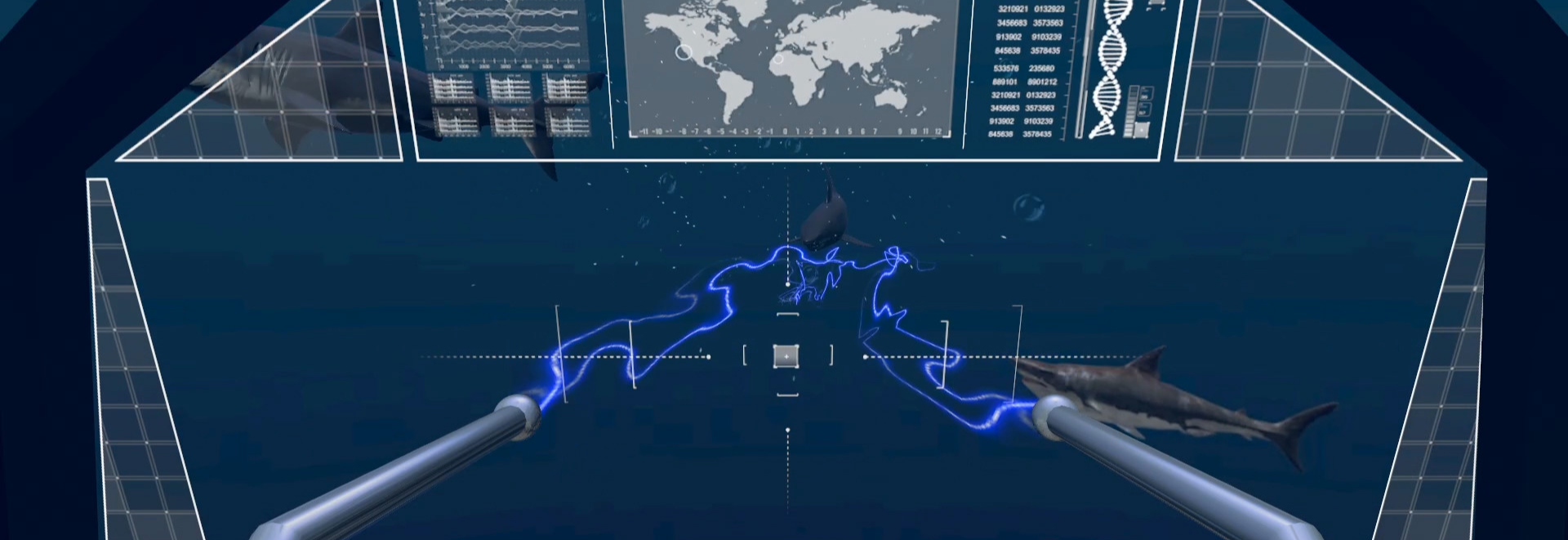
While exploring the deep sea, players may encounter
sharks, known as apex predators. To prevent potential
threats, players can use electrical devices to deter
their approach.

